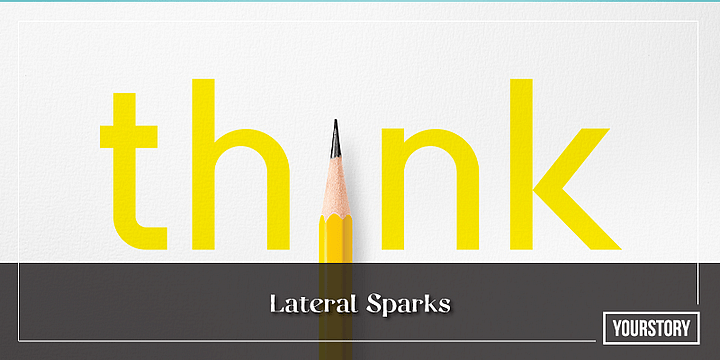test your business creativity with edition 21 of our quiz!
This weekly quiz Your story tests your domain knowledge, business acumen and lateral thinking skills (see previous edition here). In this 21st edition of the quiz, we present the issues addressed by real entrepreneurs in their startup journey.
What would you do if you were in their place? At the end of the quiz, you will find out what the entrepreneurs themselves actually did. Would you do things differently?
Discover YourStory book review section too, with takeaways of over 325 titles on creativity and entrepreneurship, and our weekend PhotoSparks section on creativity in the arts.
Q1: Durability
“Reduce, Reuse, Recycle” is one of the “3 Rs” mantras of the green movement (along with other “Rs” such as waste and reuse). But there’s another ‘R’ that fits in here – ‘replace’. How could this work?
Q2: Beyond the program
Critics have observed that education is much more than the curriculum. It includes soft skills, experiential learning, peer-to-peer activities, engaging hobbies, and hands-on experience through internships. But there is another important factor in preparing students for professional life – what is it?
Q3: Mobile adoption
A number of avenues have been explored to make mobile phone use more affordable. These include layered price plans, bundling handset prices with subscription, or designing low-cost handsets. What other way to make cell phones more affordable?
Q4: Creation of digital assets
With a lot of buzz about digital transformation and the creator economy, the focus is on building talent for digital empowerment. Having a large population of software developers helps in this regard. But what are the other drivers of digital asset creation?
Q5: Platform Economics
The lean startup movement revolves around the development of a minimum viable product (or service). The rise of platforms has introduced disruptive business models across a wide range of industries. What do platforms need to get started and how should they evolve?
Answers!
Congratulations on getting this far! But there’s more to come – answers to these five questions (below), plus links to articles with more details on entrepreneur solutions. Happy reading, happy learning and happy creating!
A1: Sustainability
“The demand for sustainable fashion is increasing tremendously and we are seeing bamboo fiber replacing others due to its performance and eco-benefits,” says Nihar Gosalia, co-founder, Mush.
The startup has developed a range of bamboo textile products. Founded in 2018, it sells eco-friendly bamboo textile bath sets, bath towels and face towels. It aims to replace cotton, polyester and other fibers with bamboo fibers. Find out more about this ecological impact here.
A2: Beyond the program
Many high schools lack a structured organization of vocational guidance, observes Prateek Bhargava, who launched Mindler in 2016. The platform provides career guidance through counseling and mentoring services.
Many students know of only a handful of career options. “Over the next five years, we hope to train more than 100,000 educators to become Certified Career Coaches,” he adds. Learn more about these aspects of educational guidance here.
A3: Mobile adoption
Founded in 2013, Yaantra repairs and sells refurbished consumer technology products such as smartphones and laptops. “There is a wide range of consumers who aspire to own branded devices, but the prices are sometimes prohibitive”, observes Prakash Sikaria, Senior Vice President – Growth and Marketing, Flipkart.
Inasmuch as
This is where Yaantra fits into the picture to make smartphones more affordable. Flipkart, India’s leading e-commerce marketplace, recently acquired re-commerce company Yaantra. Read more details here.
A4: Creation of digital assets
“India’s unique strength is its large population of developers. Low-code/no-code platforms that democratize the creation of digital assets are rapidly adding to this,” observes Anant Maheshwari, President, Microsoft India.
India’s large youth population is natively connected and mobile. India can scale the creation of digital assets without necessarily knowing how to code software, according to Anant. Learn more about these levels of technology intensity here.
A5: Platform Economics
The platform equivalent of MVP could be the base value unit. “To achieve platform scale, focus on increasing the quality and quantity of base value units on the platform,” advises Sangeet Paul Choudary, author of Platform scale for a post-pandemic world.
Examples of such units include videos (YouTube) or articles (Medium). LinkedIn’s core value unit is a connection between professionals; it then expanded by adding communications, recruiting, sales and publishing. Learn more about platform dynamics here.
YourStory also published the pocketbook “Proverbs and quotes for entrepreneurs: a world of inspiration for startups” as a creative and motivational guide for innovators (downloadable as apps here: Apple, android).


Comments are closed.